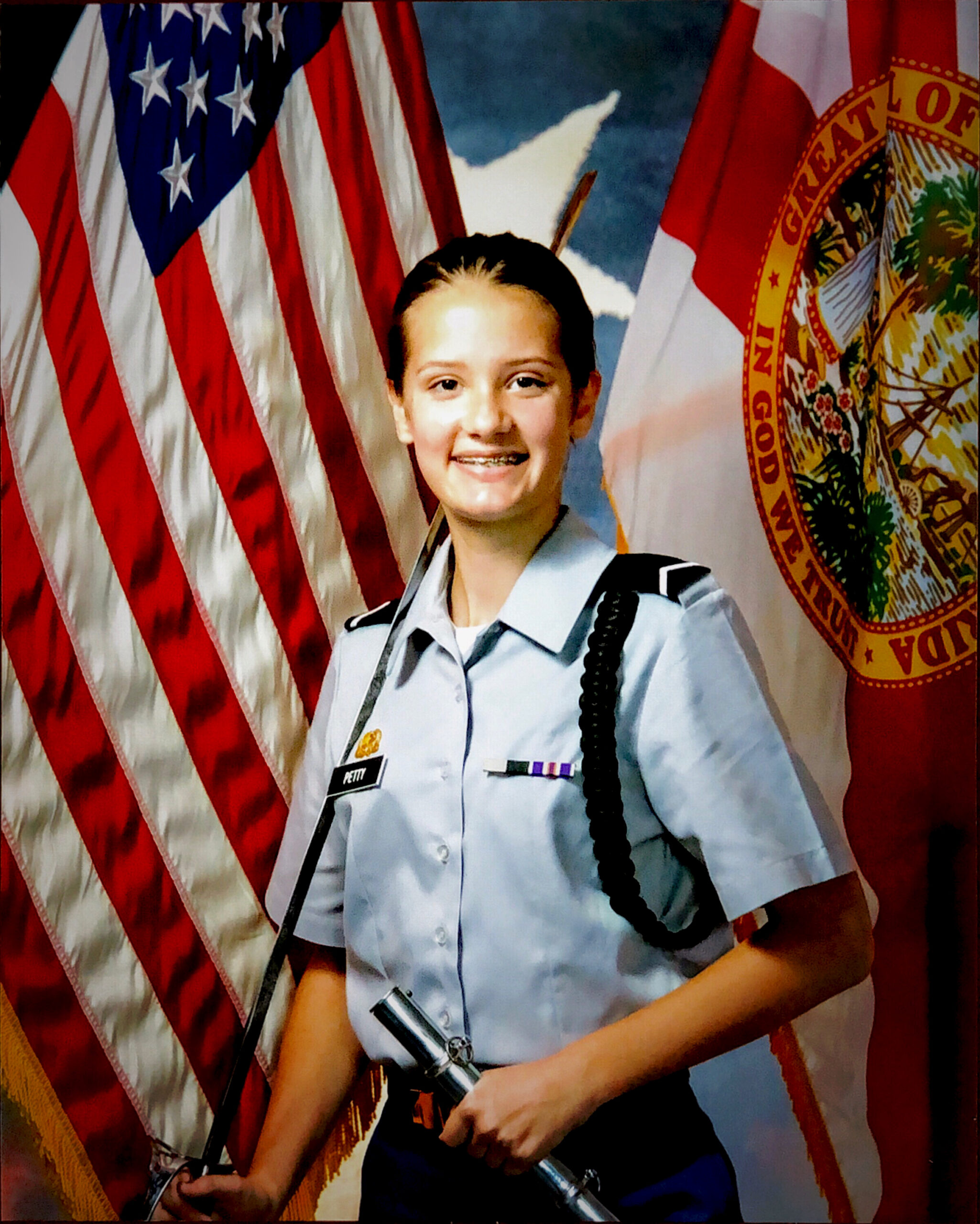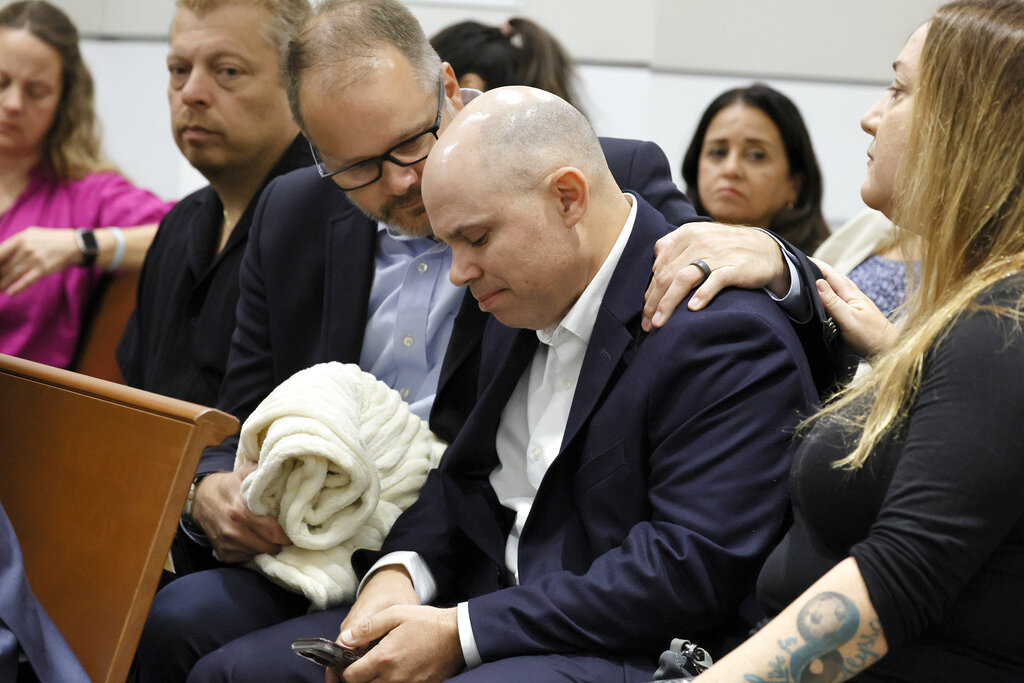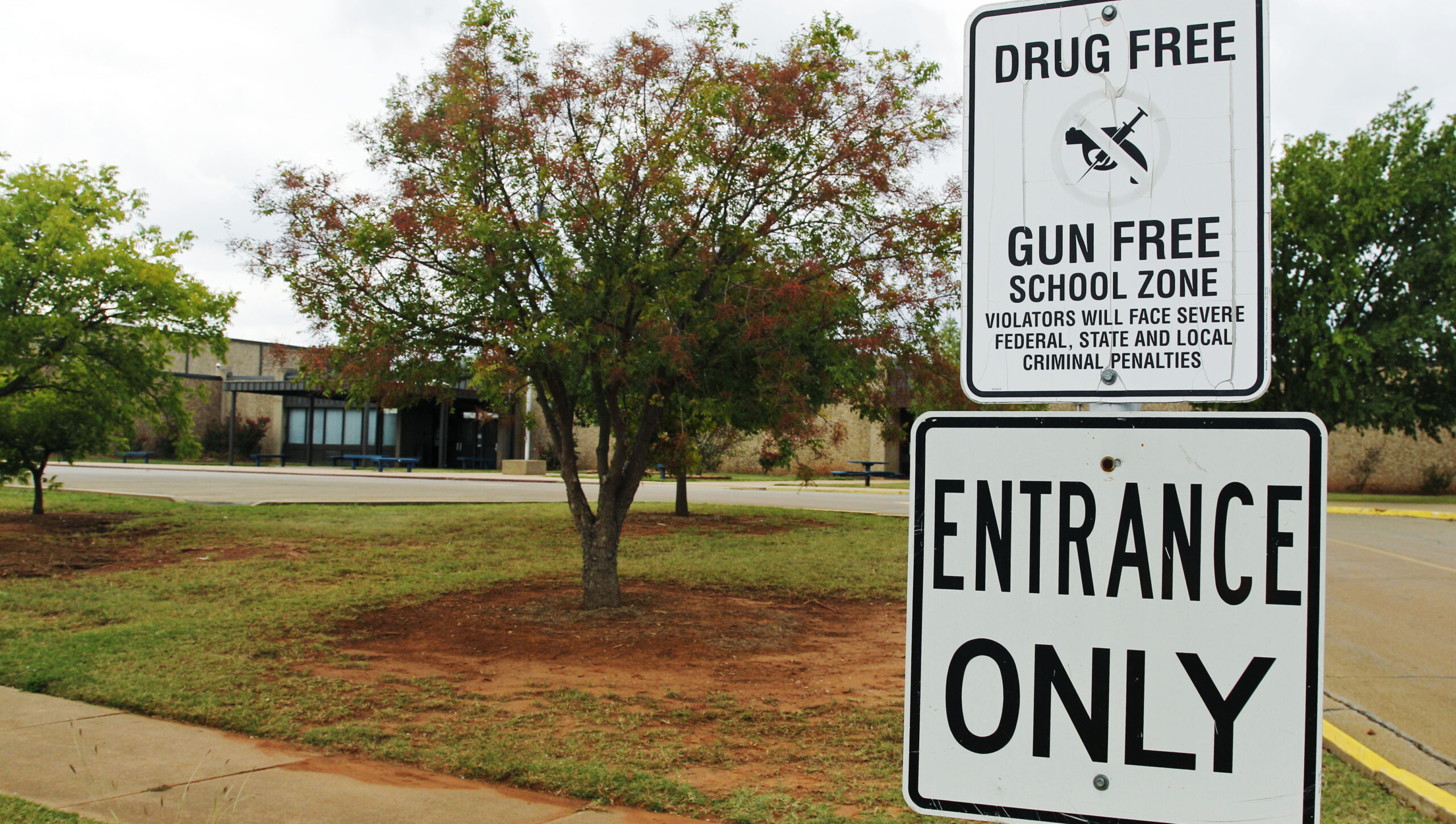On Valentine’s Day 2018, a 19-year-old opened fire on students and staff at Marjory Stoneman Douglas High School with an AR-15 semi-automatic rifle, wounding 17 and killing 17 people, including Alaina Petty, the 14-year-old daughter of Ryan Petty.
In the five years since the deadly attack in Parkland, Florida, the state has imposed several laws to combat the potential for future mass shooting scenarios, such as raising the age to purchase to 21, strengthening background checks, and introducing red flag laws.
But for Ryan Petty, the father believes cultivating more law-abiding gun owners and changing the law to allow a supermajority on a jury to recommend the death penalty are two areas of unfinished work.
‘WHAT WERE YOU THINKING?’: PARKLAND FAMILIES DEVASTATED JURY SPARED SCHOOL SHOOTER’S LIFE

“If you can’t get the death penalty for killing 17 in a school, I don’t know what you can get the death penalty for,” Ryan Petty told the Washington Examiner, referring to a jury’s decision in October last year to spare the shooter, Nikolas Cruz, by recommending a life sentence over the death penalty.
The jury voted 11-1 for capital punishment, prompting anguish and sorrow from victims’ family members and blunt calls from Gov. Ron DeSantis (R-FL) himself, who said defendants like Cruz “deserve the death penalty.”
Now, the Florida legislature is considering a new law with the backing of the governor to permit a presiding judge to override a jury’s recommendation of life or allow capital punishment if at least eight jurors agreed, creating the lowest threshold for issuing capital punishment. The bill, known as HB 555, has so far been referred to the Criminal Justice Subcommittee ahead of the start of the legislative session on April 10.

Not long after the death of his daughter, Ryan Petty was appointed in March 2018 by then-Gov. Rick Scott (R) to serve on the Marjory Stoneman Douglas Public Safety Commission and was later appointed by DeSantis to the Florida State Board of Education in January 2020.
As part of a package of bills signed by Scott after the 2018 attack, Florida created a so-called guardian program that would let school employees and many teachers carry handguns if they go through law enforcement training and if the school district decides to participate in the program.
Ryan Petty became an honorary guardian, a title reserved to nonpublic school teachers or staff, after undergoing the 160 hours of training required to qualify along with five Florida teachers. As a major proponent of the program, Ryan Petty told the Washington Examiner he believes arming more school staff could provide a faster response time in the event of a shooting.
He added that while not every school district in Florida has opted in to allow the guardian program, at least every school is equipped with an armed school resource officer or member of a guardian program to provide a “deterrent effect.”
“The last thing a criminal wants is to is to engage in criminal activity and be stopped by a law-abiding citizen that can respond and be there fast faster than law enforcement,” Ryan Petty said, noting attackers such as Cruz often attack “gun-free zones specifically because they believe they’ll meet zero or little resistance.”
The average active shooting incident lasts 12 1/2 minutes, according to a 2013 report by the FBI. During this time, law enforcement officers may not be able to arrive on the scene fast enough to stop the shooter before they kill numerous people.
Amy Swearer, a legal fellow at the Heritage Foundation, told the Washington Examiner that Florida’s “response after Parkland was aimed, as rightfully it should have been, at, specifically, violence within schools and how to keep students safe.”
Citing fatal gun violence data tracking back to 2000, Swearer has only been able to find a single fatal incident “during school hours” in the 18 years prior to the Parkland shooting and no fatal shootings inside of schools in Florida following the 2018 attack, signifying how rare mass school shootings are in the state.
While some family members of Parkland victims are supportive of ways to find alternatives to gun control legislation, others desperately want DeSantis to veto bills such as one pending proposal that would make it legal to openly carry guns without a license or permit, known as HB 543.
“A bunch of these legislators think that by putting legislation into place, that people will be able to stop crime like it’s the Wild West. That’s not how it works,” said Samuel Schwartz, an 18-year-old cousin of Alex Schachter, who was 14 when he was killed in the Parkland shooting.
“It will have the opposite effect. More guns means there will be more death. There will be more violence. More Floridians will die if this bill is passed. That is the sad matter of fact,” Samuel Schwartz said.
Another prominent advocate and Stoneman Douglas shooting survivor, David Hogg, recently touted that gun control measures have stopped some mass shootings but acknowledged that such shootings have persisted, with around 600 last year, including the May 24, 2022, killing of 19 children and two adults in Uvalde, Texas.
Pro-gun advocates such as Ryan Petty have also floated other possible solutions to stop shootings, with Ryan Petty saying he believes “properly conducted behavioral threat assessment, with law enforcement, would have yielded a different outcome” in the Parkland shooting.
Meanwhile, the Supreme Court‘s decision last year to overturn New York’s gun control laws could prove to be a steep legal hurdle for advocates who want to curb gun access as their preferred method to combat future school shootings. The New York Rifle & Pistol Association v. Bruen decision said any gun restriction “demands a test rooted in the Second Amendment’s text, as informed by history.”
As Florida lawmakers prepare to consider a new permitless carry bill, Ryan Petty said he would advocate in Tallahassee the permitless carry bill along with changes to the death penalty requirements, underscoring that lawmakers need to create laws “focused on criminal behavior.”
CLICK HERE TO READ MORE FROM THE WASHINGTON EXAMINER

If the measure passes, Florida would become the 26th state to enact a permitless carry law, just after Alabama became the 25th state to enact such a law at the start of the year.
“You still have to buy a gun legally [and] you still have to go through a background check. None of that changes,” Ryan Petty said, adding, “Your ability to bear arms would not be infringed by the state government in 26 states.”

